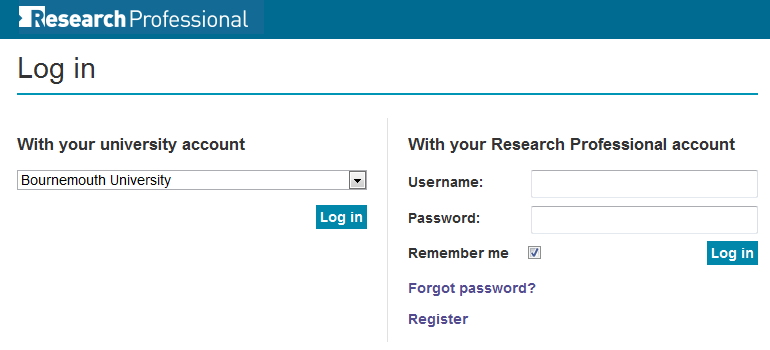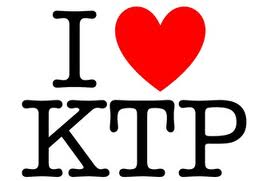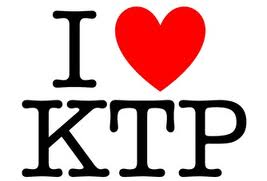The following funding opportunities have been announced. Please follow the links for more information:
The AHRC, working with the ESRC and other RCUK partners, is seeking to appoint a Leadership fellow for a three year period to provide intellectual leadership and strategic advice on the development of the new Conflict Theme within the Partnership for Conflict, Crime and Security Research (RCUK Global Uncertainties Programme). The Fellowship must start between 01/01/15 and 01/04/15. The deadline for applications is 16:00 on 30/09/14.
 The AHRC are inviting participants to attend a two day workshop – Mixed Reality Game Design – part of the AHRC-funded Performance and Games Network, and will explore the collaborative space between performing arts and game design. The event is suitable for practitioners and researchers working in performing arts, game developers/designers, and researchers from other disciplines interested in this theme. Funding is available for travel and accommodation. The event takes place on 27th – 28th October 2014. Applications for assistance should be made as soon as possible.
The AHRC are inviting participants to attend a two day workshop – Mixed Reality Game Design – part of the AHRC-funded Performance and Games Network, and will explore the collaborative space between performing arts and game design. The event is suitable for practitioners and researchers working in performing arts, game developers/designers, and researchers from other disciplines interested in this theme. Funding is available for travel and accommodation. The event takes place on 27th – 28th October 2014. Applications for assistance should be made as soon as possible.
Are you a scientist, technologist, engineer or mathematician who has had a career break of 2 or more years for family, caring or health reasons and wishes to return to research? If so the Daphne Jackson Trust may be able to help with a Fellowship. There are sponsored fellowships with closing dates given on the website or, if you have a host institution in mind, you can apply at any time.
The EPSRC in collaboration with the Rail Safety and Standards Board (RSSB), supported by Department for Transport (DfT) invite research proposals working towards the following joint research call is to establish a number of cross-disciplinary consortia to conduct research into novel applications for materials to reduce whole life asset costs. It is anticipated that three to four proposals (in the region of £500,000 – 800,000) will be funded. Closing date – 09/10/14 at 16:00.
Funded by the EPSRC and co-ordinated by the University of Sheffield AMRC, High Value Manufacturing Catapult fellowships aim to strengthen relations between academics and manufacturers, and accelerate the transition of research from the laboratory to industry. The fellowships will enable academic staff to spend six-month research visits, spread over one to four years, in one or more of the HVM Catapult centres. The projects must be aligned to work previously funded by EPSRC. Applications should be received by the funder by noon on 29/08/14.
The EPSRC invites Expressions of Interest (EoI) from UK universities to join a consortium to establish an internationally-recognised Institute to lead in research, education and knowledge transfer in the data sciences: The Alan Turing Institute. Those considering an application to this call must register, by 20/08/14, to attend an open meeting on 24/09/14. The closing date for application is 30/10/14.
The EPSRC Resource Allocation for Archer call (Summer 2014) is now open. Top-ups for existing holders are also available. Both calls close on 15/09/14 at 16:00.
EPSRC Programme Grants are a flexible mechanism to provide funding to world-leading research groups to address significant major research challenges. Applicants must discuss their suitability for Programme Grant funding with an identified EPSRC contact before submitting an Outline application. There are panels throughout each academic year.
The EPSRC-funded Programme Grant “Silicon Photonics for Future Systems (SPFS)” includes an innovation fund to enable the inclusion of additional partners to bring additional value to the programme. Initial engagement will be via short research projects that support the aims of the programme. Therefore, proposals from UK‐based academic researchers are invited for projects valued up to £100k to support the research areas of the Programme Grant. Closing date 05/09/14.
Announced on the ESRC website, the Open Research Area in Europe (ORA) partners are pleased to announce that they expect the fourth joint call for proposals to open this autumn. Four countries participating in the fourth ORA call: UK, Germany, the Netherlands and France. Proposals will be accepted for research projects in any area of the social sciences involving researchers from any combination of two or more of the participating countries (excluding bilateral applications from French-German teams). In this call the Japan Society for the Promotion of Science (JSPS) will be collaborating with ORA as an associate partner and applicants to the ORA Joint Call may seek partnerships with Japanese researchers.
The ESRC is inviting Expressions of Interest for the post of Co-ordinator for ESRC’s new Urban Transformations portfolio. The appointment is for 12-18 months in duration, with the successful applicant offering a minimum of 50 to 60 per cent time allocation (FTE) over this period. The EoI should be submitted by 16:00 on 08/09/14 and the successful applicant should take up this post by 01/12/14.
The Joint POST–ESRC postgraduate fellowship scheme provides an opportunity for ESRC-funded postgraduate students to be seconded to the Parliamentary Office of Science and Technology (POST) to assist in producing independent, balanced and accessible analysis of public policy issues for Parliamentarians. The start date of the fellowship will be between January and October 2015, to be agreed between the applicant, POST, the applicant’s supervisor and university. Applications should be received by the funder on 03/10/14.
The ESRC are looking to appoint an individual or team to review in detail the opportunities, issues, design considerations and short and long term cost implications of establishing a web-based probability panel in the UK. A web-based probability panel offers transformative potential for social science research and should reduce data collection costs over time. The ESRC are seeking detailed advice and guidance to inform our decision-making and would expect the appointed individual or team to consult widely with the user community to establish the potential demand, options and design considerations for a UK web-based probability panel. Closing date 16:00 on 11/09/14.
The Leverhulme Trust is offering Up to £125,000 over up to three years to allow a UK-based researcher to build a new collaborative research project with overseas institutions, to develop international networks. These collaborations enable a Principal Investigator based in the UK to lead a research project where its successful completion is dependent on the participation of relevant overseas institutions. First-stage outline applications can be submitted at any time.
The MRC and the Department of Biotechnology (DBT) in the Government of India invite proposals to the UK-India Joint Centre Partnerships call via the Newton Fund. This initiative seeks to build upon substantial pre-existing collaborations between high quality research teams based in the UK and India. Applications must relate to one of the following – Cancer biology, Translational regenerative medicine in neuroscience or Antimicrobial resistance especially resistance to antibiotics. Closing date 29/09/14 at 16:00.
The MRC Integrative toxicology training partnership (ITTP) PhD studentship scheme is an initiative with the aim of improving and boosting capacity in the toxicological sciences by sponsoring PhD studentships. Details for applications by potential supervisors for the next round of studentships to start Autumn 2015 has a deadline of 30/11/14 and there must be a representative at an Interactive meeting on 22/09/14.
NERC invites proposals to the new research programme Valuing Natural Capital in Low Carbon Energy Pathways (VNC), which will form a challenge for phase 3 of the UK Energy Research Centre (UKERC). Proposals should also include links to the new NERC Valuing Nature programme. The overarching aim of this research programme is to understand the implications for natural capital and the provision of ecosystem services of a range of future energy scenarios, including scenarios that are compatible with the UK’s energy policy goals of maintaining energy security, keeping energy affordable and cutting greenhouse gas (GHG) emissions by 80% by 2050. The closing date for this call is 16:00 on 18/09/14.
The Royal Society’s University Research Fellowships scheme is for outstanding scientists in the UK who are in the early stages of their research career and have the potential to become leaders in their field. The scheme covers all areas of the life and physical sciences, including engineering, but excluding clinical medicine and any researcher addressing a direct biomedical research question. Closing date 11/09/14.
Round 9 of the Technology Strategy Board’s Innovation Vouchers is now open! This scheme is designed to help businesses gain the knowledge they need to innovate and grow. They are open to SME businesses looking to obtain expert advice from a knowledge supplier they haven’t worked with before (such as BU or a School / Faculty within BU). Up to £5,000 is available and the deadline for this call is 22/10/14.
The Technology Strategy Board is to invest up to £3.5m in collaborative R&D projects to stimulate new ways of reducing energy consumption in computer systems. They are looking to encourage innovative approaches in hardware and/or software across all computer systems, including the internet of things (IoT) – and embedded systems. The aim of this competition is to accelerate the development of emerging technologies and to strengthen the focus of UK industry on the issue of energy consumption in computer systems. The funder is seeking proposals that show companies working together – particularly large with small – to scale up innovations in this area. Proposals must be collaborative and business-led. A briefing event for potential applicants will be held in London on 3 September 2014. The briefing will also be made available live as a webinar, which will be recorded for viewing subsequently. Consortium-building workshops will also be arranged. This is a two-stage competition that opens for applicants on 01/09/14. The deadline for expressions of interest is at noon on 15/10/14. The second stage deadline for invited applications is at noon on 04/12/14.
The Department for Transport and the Department for Business, Innovation and Skills, working in partnership with the Technology Strategy Board, are to invest up to £10m in collaborative R&D projects to research further how driverless cars can be integrated into everyday life in the UK. This call aims to establish the UK as the global hub for the R&D and integration of driverless vehicles and associated technologies into society and to attract future investment by identifying up to three urban test locations for further research, with projects expected to range in size from total eligible costs of £5m to £10m. All projects must be collaborative and business-led. Applicants must register by noon, 24/09/14 with submission by noon, 01/10/14.
Via the Technology Strategy Board, CRACK IT Challenges is a milestone-driven funding competition from The National Centre for the Replacement, Refinement and Reduction of Animals in Research (NC3Rs). There are up to four Challenges this year with a total of seven Sponsors, with funding ranging from £100k to £1m and contracts from 1-3 years. The Challenges will be announced on Wednesday, 6 August. Further information is also available on the CRACK IT website.
The Technology Strategy Board is investing up to £6m in an SBRI competition to develop innovative solutions that can help cities plan more successfully for the future. This SBRI competition aims to encourage new ways of achieving better integration of infrastructure and services across a city, by improving understanding of how elements of these systems interact with each other. Up to £6m is available to encourage companies to develop prototypes and to demonstrate how they would link up different city models. Solutions should enable users to interact with multiple models to tackle different city problems. Contracts will be awarded to single suppliers, who may sub-contract to other partners. This competition is open to all organisations that can demonstrate a route to market for their solution. The deadline for registration is noon on 07/01/15 and the deadline for applications is noon on 14/01/15.
The Wellcome Trust’s Strategic Awards in Biomedical Science provide flexible forms of support to excellent research groups with outstanding track records in their field. In particular, Strategic Awards support research to address the challenges outlined in the Wellcome Trust’s Strategic Plan for 2010-2020. Proposals which involve interdisciplinary research collaborations of basic scientists and/or clinicians (medical and veterinary) and/or non-biologists (e.g. mathematicians, physicists, chemists, engineers, social scientists) are particularly encouraged. Applications can be submitted on a rolling basis.
The Wellcome Trust and National Institutes of Health PhD Studentships scheme provides opportunities for the most promising postgraduate students in Biomedical Sciences to undertake international, collaborative four-year PhD training based in both the UK/Republic of Ireland and USA at the National Institutes of Health campus. The deadline for applications is 03/11/14.
The Wellcome Trust’s People Awards and Society Awards are two related schemes supporting projects that encourage the public to explore biomedical science, its impact on society and culture, its historical roots or the ethical questions that it raises. The schemes are open to a wide range of people, including: mediators, facilitators and practitioners of science communication; science centre/museum staff; artists; educators; film makers; theatre producers; games developers; public participation practitioners; health professionals; and academics in bioscience, social science, bioethics and medical history and humanities. There are deadlines thourghout the year with the next three being: 15/08/14 (17.00), 14/11/14 (17.00) and 20/02/15 (17.00).
The Sir Henry Dale Fellowship brings together the Royal Society and the Wellcome Trust, two of the world’s most prestigious and influential scientific organisations, in their shared commitment to supporting the future leaders of biomedical research. The scheme is for outstanding postdoctoral scientists wishing to build their own UK-based independent research career addressing an important biomedical question. The scheme seeks to support individuals who would have previously applied for a ‘biomedical’ Royal Society University Research Fellowship or a Wellcome Trust Research Career Development Fellowship hosted by a UK academic organisation. The preliminary deadline is 21/11/14.
Please note that some funders specify a time for submission as well as a date. Please confirm this with your RKE Support Officer.
You can set up your own personalised alerts on ResearchProfessional. If you need help setting these up, just ask your School’s RKE Officer in RKE Operations or see the recent post on this topic, which includes forthcoming training dates up to November 2014.
If thinking of applying, why not add notification of your interest on ResearchProfessional’s record of the bid so that BU colleagues can see your intention to bid and contact you to collaborate.
























 SPROUT: From Sustainable Research to Sustainable Research Lives
SPROUT: From Sustainable Research to Sustainable Research Lives BRIAN upgrade and new look
BRIAN upgrade and new look Seeing the fruits of your labour in Bangladesh
Seeing the fruits of your labour in Bangladesh Exploring Embodied Research: Body Map Storytelling Workshop & Research Seminar
Exploring Embodied Research: Body Map Storytelling Workshop & Research Seminar Marking a Milestone: The Swash Channel Wreck Book Launch
Marking a Milestone: The Swash Channel Wreck Book Launch ECR Funding Open Call: Research Culture & Community Grant – Application Deadline Friday 12 December
ECR Funding Open Call: Research Culture & Community Grant – Application Deadline Friday 12 December MSCA Postdoctoral Fellowships 2025 Call
MSCA Postdoctoral Fellowships 2025 Call ERC Advanced Grant 2025 Webinar
ERC Advanced Grant 2025 Webinar Update on UKRO services
Update on UKRO services European research project exploring use of ‘virtual twins’ to better manage metabolic associated fatty liver disease
European research project exploring use of ‘virtual twins’ to better manage metabolic associated fatty liver disease